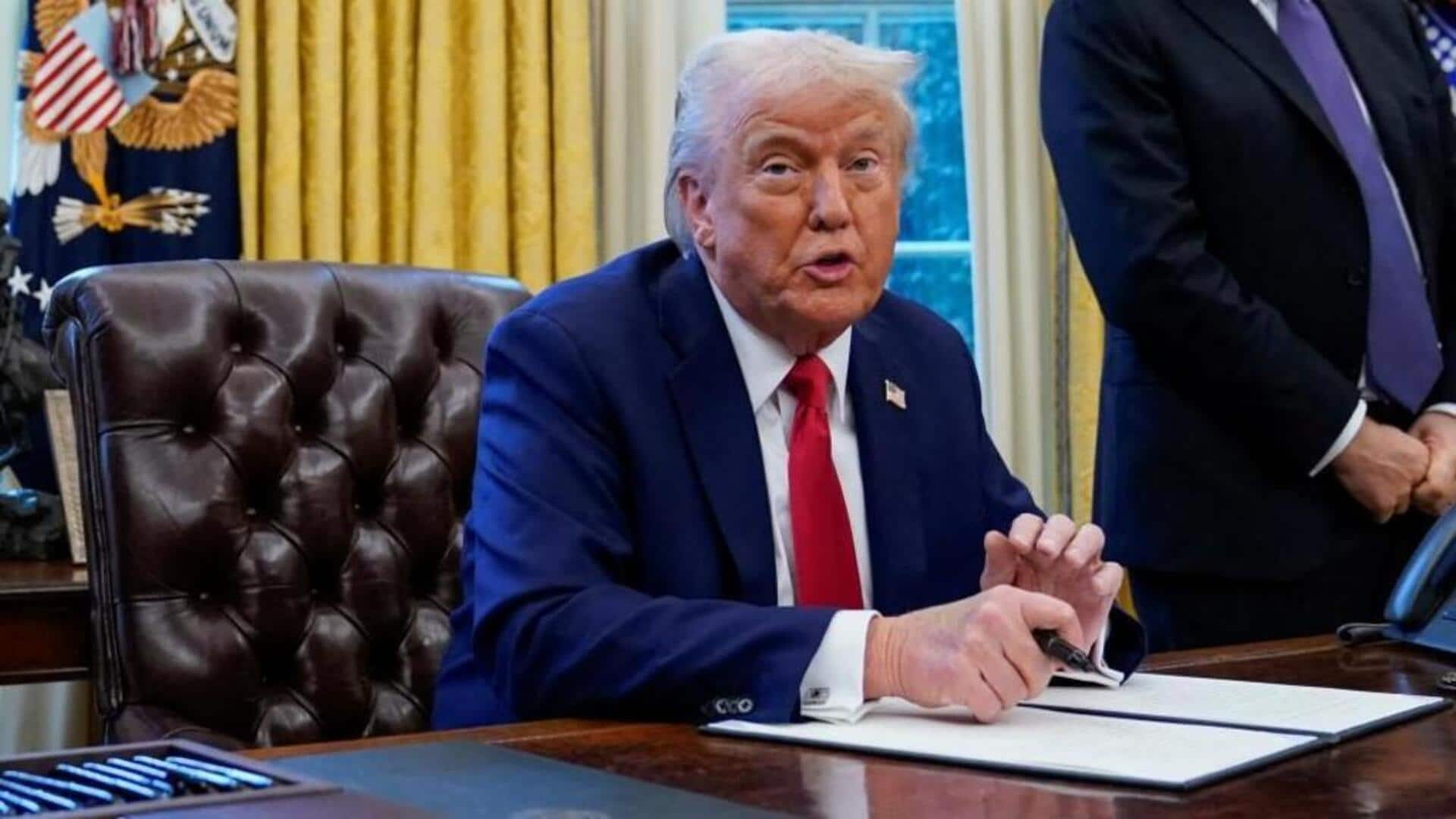
Amid economic struggles, Trump hints at reduction in China tariffs
What's the story
US President Donald Trump has announced that the high tariffs on goods imported from China will be significantly reduced, but will not reach zero. Trump made the statement during a recent White House press conference. Trump's statement aligns with Treasury Secretary Scott Bessent's earlier comments about the unsustainability of high tariffs and potential de-escalation in the trade war between the US and China.
Trade relations
"US is doing well with China"
Despite the ongoing trade war, President Trump is adamant that the US is doing well with China. In the context of ongoing discussions about trade terms, Trump stated, "We're doing fine with China." This comes after he imposed a 145% import tax on Chinese goods, which China retaliated against with a 125% tariff on American products.
Diplomatic approach
Trump promises to treat China "very nicely"
In a bid to calm nerves, President Trump promised to be "very nice" with China and not take a hardline approach with Chinese President Xi Jinping. He said, "We're going to live together very happily and ideally work together." This diplomatic move comes as Trump's tariffs were criticized on China's social media platform Weibo, where his comments trended under several hashtags, including "Trump admitted defeat."
China reacts
China's response to Trump's tariff reduction announcement
China's government has not yet responded to President Trump's announcement of the impending reduction of tariffs on Chinese goods. However, it has consistently criticized Trump's high tariffs in the past. An article in China Daily, a state-run newspaper, described these remarks as "emblematic of the MAGA agenda's populist protectionism" and destabilizing global trade.
Scenario
Experts say China remains patient amid US pressure
Trump's recent comment hinting at easing tariffs on China signal a potential shift in the US-China trade conflict. However, experts say this doesn't represent a major breakthrough in negotiations. Economists suggest that while Trump's comments reflect anxiety in the US, China remains patient, with no rush to finalize a deal. As bilateral trade tensions escalate, China sees little need to push for an agreement, sensing that the US may be more desperate for resolution due to economic pressures.
Stronger position
US economic struggles push Trump for quick China deal
The US's economic challenges, including market instability and high Treasury yields, have led Trump to seek a quick deal with China, according to the economists. As a result, China may find itself in a stronger position, potentially securing favorable terms. Experts highlight that both countries are still engaged in a cycle of retaliatory measures, with tariff rates only one aspect of a broader trade dispute. For progress, further discussions on tariffs through working groups could provide a clearer path forward.